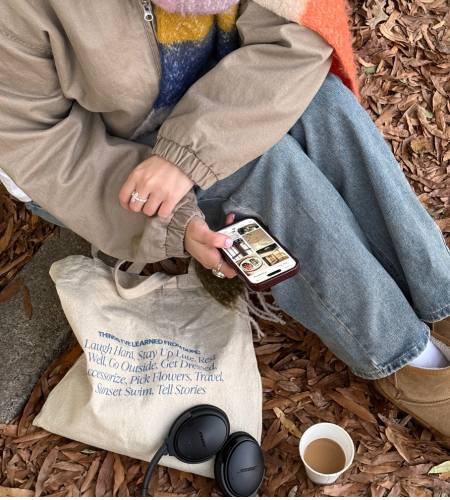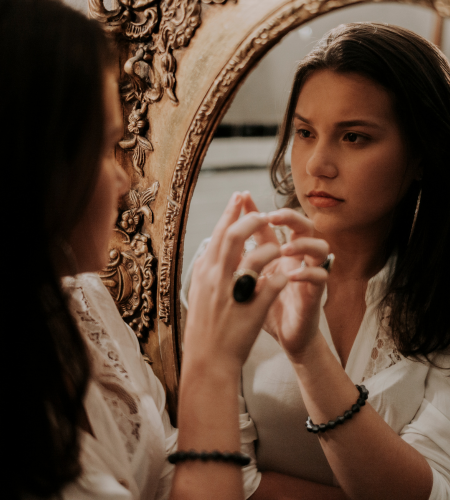
Have you ever noticed that saying ‘no’ seems to be a lot harder than responding with a simple 'yes'? Well, don't worry because today we're talking about why you might struggle to say no and how to combat any guilt or anxiety you feel when doing so. Here are the nine common reasons why you may be struggling to turn down requests - even when you know deep down inside that something simply isn't worth your time! So let's get into it – shall we?

1. Fear of missing out - worrying that you'll miss out on something if you do say no
Whether we’re surrounded by our friends at a party or out on the town, it can be struggle to say no when presented with fun opportunities. We don’t want to miss out or have that FOMO (fear of missing out) feeling. But, taking on too much can quickly lead to being overwhelmed and regretting that you couldn’t say no. It’s important to remember that getting a bit of rest or down time will help keep your energy up, rather than joining in every single thing. Don’t let anyone make you feel like you need to be part of everything -- and understand that saying 'no' is actually an important skill for success!
2. Fear of confrontation - not wanting to deal with the potential fallout from saying no
The fear of confrontation can be real and overwhelming; it's so much easier to just say yes and avoid an argument or a scene. But if we always just agree to everything, life can become pretty unbearable and we might end up feeling powerless and helpless - or worst, feeling resentment.
Nobody likes conflict, I get it. It can be uncomfortable and no one knows what the outcome will be. But running away or avoiding a confrontation doesn't mean the problem goes away. All that fear won't stop other people from imposing their will on you if you let them get away with it. You need to find your voice, take control of the situation, and understand that not all fallouts are bad – if anything, there's the potential for mutual understanding when we make an effort to communicate openly and honestly.
So next time you're hesitant about saying no and worried about the potential fallout, remember that standing up for yourself is essential for a healthy quality of life and personal growth.
3. Feelings of guilt or obligation towards others- thinking that saying no will disappoint someone or cause them to lose respect for you
It's common to feel guilty or obligated towards others when you're presented with a request. You might think that saying no will disappoint them and cause them to lose respect for you, but this isn't necessarily the case.
It can be difficult to balance your own needs with those of other people. We all have our limits and it’s important to recognize when we’ve reached them. While we can't control other people's emotions, it is important to remember that we still need to do what's best for us. Everyone has their own boundaries and it's important to respect yours in order to maintain your wellbeing.
Saying 'no' isn't an act of selfishness, it's simply a way of taking care of yourself and setting limits so that it doesn't lead to feelings of resentment and frustration, which can take a toll on our mental health.
The important thing is to communicate your decision in a respectful manner so that the other person understands your reasons for saying no. Once they understand, it will be easier to move past the feelings of guilt or obligation.

4. Don't want to be seen as unhelpful or uncommitted- feeling like people won't think highly of you if you don't say yes
Trying to please everyone and be helpful all the time can be a difficult trap to get out of - it's easy to fall into the mentality that if you don't do something, if you don't say yes, then people won't think highly of you. I know this feeling all too well! However, it's critical to stay true to yourself and decide how best you can be helpful in any given situation. Don't feel obligated to take on more than what makes sense for your life and capabilities: if someone isn't generous enough to understand or respect that, well - maybe their opinion of you isn't one that deserves too much consideration anyway! At the end of the day, make sure that whatever decision is made, it's one that serves you best.
5. Get anxious about the consequences- being worried about what other people might think, say, or do if you do say no
Feeling anxious about the consequences of saying no can be daunting and intimidating. It's especially tricky in situations where you don't have total control over what others might think, say, or do if you take the stance you want to take. However, it's important to remember that you have a right to make your decisions based on your own preferences - nobody can decide for you! Taking the leap and trusting yourself is the key to steering clear of unwanted reaction of the people around you. A wise woman once said, "Don't be scared to be who you are - be bold!" So take a deep breath, steel your nerves and step into this situation with confidence in your voice.
6. Want to please everyone- putting everyone else's needs above your own and struggling to put yourself first
Trying to please everyone is a guaranteed way to leave your own needs unattended. The habit of always putting the needs of others above our own can be detrimental, preventing us from having clear boundaries or setting our own priorities. It's easy to get caught up in the expectations of others and forget to cultivate our own will power or tenacity. Being able to stand up for what we need, even when it goes against other people's wishes is an important skill but one that is hard to learn in these situations. It may feel rebellious at the time, but ultimately standing your ground could be the most rewarding thing you'll ever do!


7. Fear of failure- when there's a lot riding on something, saying no can lead to feeling like you're not doing enough or living up to expectations
When it comes to saying no, a lot of us feel like we're letting ourselves down or failing in some way. But the truth is, sometimes 'no' is actually the best answer. And if that means you don't live up to other people's expectations, then so be it! After all, it's more important to do what's right for yourself. If you're worried about not being enough, just remind yourself that it's okay to say no - it doesn't make you weak or incapable. On the contrary, saying no can be a sign of strength and independence! So don't fear failure - embrace your inner rebel and stick to your guns.
We've all been there: the fear of failure is a real and present danger when ambition and success are at stake. But it's important to remember that saying 'no' is not only acceptable but also necessary! Just because you're not doing something doesn't mean you're failing; sometimes, taking a step back can lead to big leaps forward. After all, if you don't take risks and push yourself out of your comfort zone, how can you expect to reach your full potential? So don't be scared to say no - have the confidence to make decisions that are best for you!
8. Fear of being "mean"- misconstruing assertiveness as being rude
As women, we are taught from a young age that being polite is paramount — so much so that many of us find it difficult or awkward rejecting someone or saying "no" outright because we fear that it'll come across as "mean" or "rude". But it's important to remember that saying no isn't always a bad thing, and that you can say 'no' and still be polite and respectful. Being assertive is not the same as being rude —it's about expressing your opinion in a clear and respectful manner.
At the end of the day, you need to learn how to stand your ground when it comes to decisions that affect your life. Being assertive and setting clear boundaries doesn't make you a bad or mean person - it just shows that you have the courage to be honest about your own needs and opinions. So don't be scared of saying no - trust yourself and be bold!
9. You simply don't know how to say it
Sometimes it's not a matter of fear or guilt, but more so because you're justt insure of HOW to say no. It's super important to have the ability to express your opinion and assert yourself, so don't be afraid to practice! Whether it's in front of a mirror or with some close friends, saying no doesn't have to be intimidating. The key is being confident and consistent in your message - you can do this! Remind yourself that you are worth it and that you deserve to be heard. If you don't know how to say no, start small - practice on those 'lesser' things before tackling the bigger ones! You'll get better with time and experience. Saying no doesn't have to be scary - with a bit of practice and confidence, you can master the art of expressing your opinion in any situation.
Conclusion
While it's important to please people and not let them down, we need to remember that our mental health matters just as much. And if saying no can give us a chance to honor ourselves and our own needs, then we should be comfortable with doing that.
Learning how to say no and learning when it's right or wrong is an essential skill in life but it can often be hard - especially if you have perfectionistic tendencies. We need to make sure that we're being honest with ourselves and others when it comes to making decisions and while we should put others first, we also need to put our own needs first too.
So next time you are struggle to say no or feel obligated to accept something - take a pause and reflect if it's really the right thing for you. And don't let fear or guilt hold you back - stand up for yourself and show the world that YOU are in control of your own life.
Download the free worksheet with different ways to say 'no' and kick-start your journey into putting yourself first!
Go out there, do what you love, set boundaries, and love yourself more.








+ view comments . . .
+
view comments . . .
-